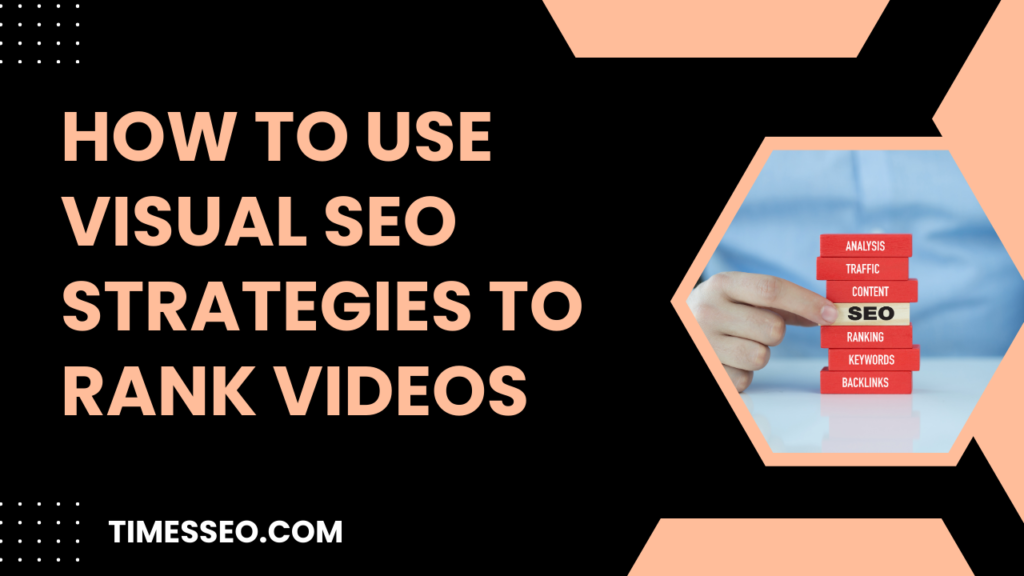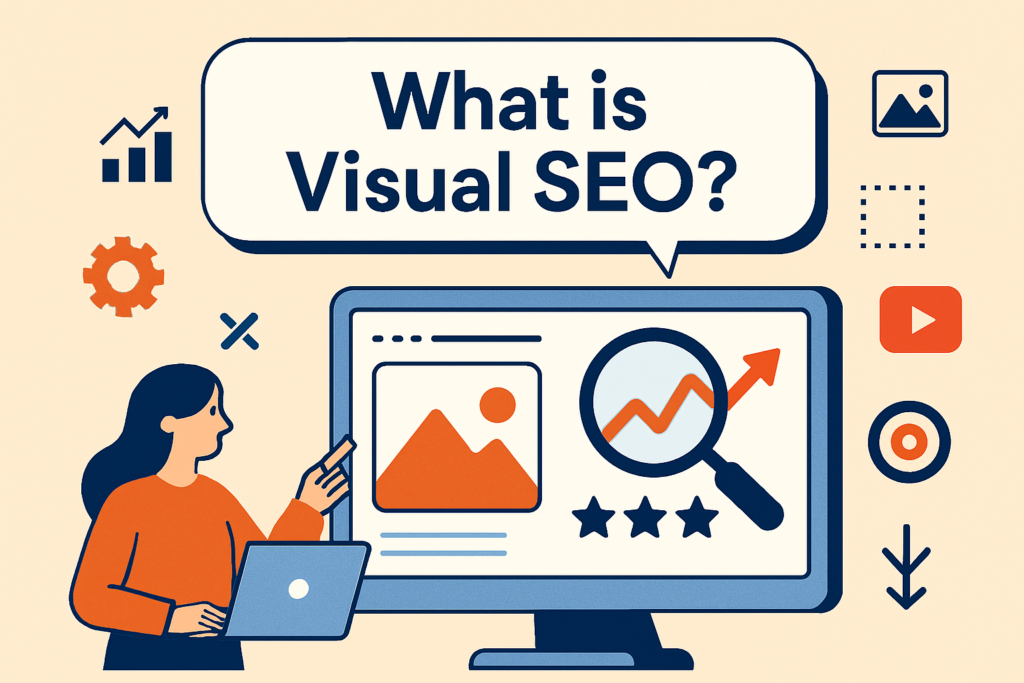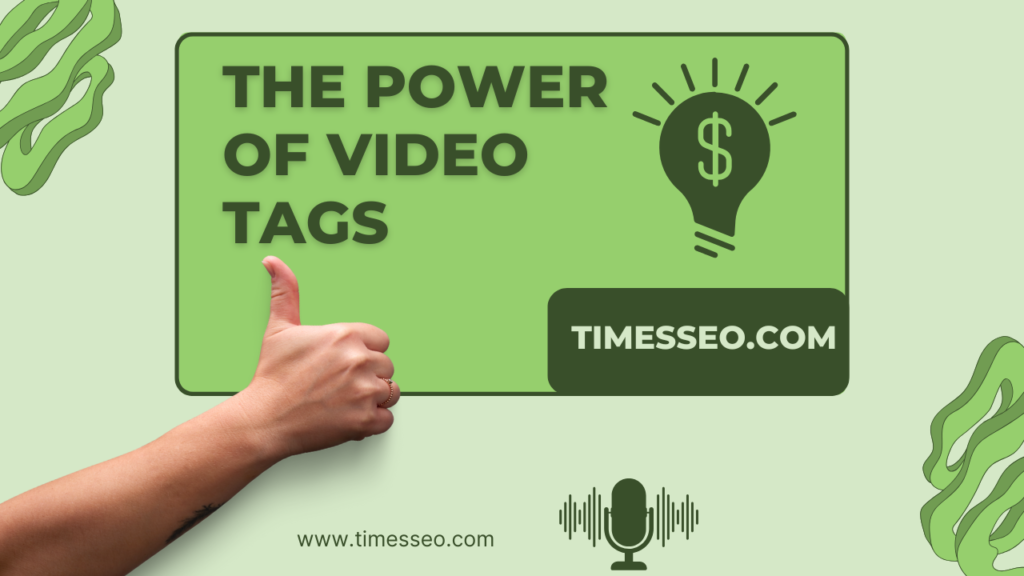
How to Use Visual SEO Strategies to Rank Videos
Discover how to use visual SEO strategies to boost your video rankings on YouTube and Google. Learn practical tips on optimizing titles, thumbnails, tags, and engagement to drive more views and visibility.
Table of Contents
Introduction
Video content is everywhere—on YouTube, Instagram, TikTok, and even search engines. But simply uploading a video isn’t enough to reach viewers. That’s where visual SEO strategies come in. These strategies help your videos rank higher on search engines and YouTube, driving more traffic and boosting visibility.
What is Visual SEO?
Optimizing visual content, particularly videos, to make sure they rank highly in search results is known as visual SEO. It goes beyond text-based SEO by focusing on video titles, thumbnails, transcripts, and engagement metrics.
Why is this important? Because search engines now favor mixed results, meaning videos often appear alongside blogs, articles, and images.
Why Videos Need SEO Optimization
Every day, millions of videos are uploaded online. Without optimization, your content risks getting buried. Optimizing videos helps:
- Improve search visibility
- Increase engagement and audience retention
- Drive targeted traffic from both YouTube and Google
The Connection Between YouTube and Google Search
Google owns YouTube, the second-biggest search engine. When optimized properly, your videos can rank not only on YouTube but also on Google search results—giving you double the exposure.
Core Elements of Visual SEO Strategies
The backbone of video SEO lies in:
- Crafting strong titles and descriptions
- Using effective tags and metadata
- Designing eye-catching thumbnails
Let’s dive deeper into each.
Optimizing Video Titles for SEO
Similar to a headline, your video title needs to draw viewers in and contain your goal term. Place your keyword at the beginning and keep the title concise yet engaging.
Example: Instead of “Tips for Marketing on YouTube”, use “YouTube Marketing Tips: How to Grow Fast”.
Crafting Effective Video Descriptions
The description helps both search engines and viewers understand your video. Include your main keyword naturally, add helpful context, and include CTAs or links to other content. Aim for at least 200 words.
The Power of Video Tags
Tags help YouTube’s algorithm understand your video topic. Use a mix of broad and specific tags. For example, if your keyword is “visual SEO strategies”, your tags might include:
- Visual SEO strategies
- Video SEO
- YouTube ranking tips
- SEO for videos
Thumbnail Optimization
A great thumbnail increases click-through rates. Use bold text, high contrast colors, and consistent branding to stand out. Think of it as a mini billboard for your video.
Video Transcripts and Closed Captions
Adding transcripts improves accessibility and helps search engines crawl your content. Captions also boost viewer engagement since many people watch videos without sound.
Engagement Signals That Influence Ranking
YouTube’s algorithm values user interaction. More likes, comments, shares, and longer watch times tell the platform your video is valuable—pushing it higher in rankings.
Leveraging Playlists and Video Series
Creating playlists helps organize your videos and encourages viewers to watch more, increasing overall watch time. A well-structured playlist also gives search engines more context about your content.
Embedding Videos on Websites
Embedding your videos in blog posts and websites increases their visibility. It also boosts dwell time—when visitors stay longer on your page—which improves SEO rankings.
Social Media Promotion for SEO
Sharing videos on Facebook, LinkedIn, Instagram, and Twitter not only drives more views but also generates backlinks, which are powerful SEO signals.
Analyzing Video Performance
Track performance using tools like YouTube Analytics, Google Analytics, and third-party platforms. Monitor metrics like click-through rates, watch time, and keyword ranking to refine your strategy.
Future Trends in Visual SEO
Emerging technologies are linked to the future of video SEO:
- AI-driven video optimization tools
- Integration with voice search
- Increasing importance of visual search engines like Google Lens
Conclusion
Ranking videos is no longer about luck—it’s about strategy. By applying visual SEO strategies, you can optimize your titles, descriptions, tags, and thumbnails to improve visibility and engagement. Remember, SEO isn’t a one-time effort. Keep testing, learning, and adapting to stay ahead.
Frequently Asked Questions
They are techniques to optimize videos and images so they rank higher on search engines and YouTube.
Thumbnails influence click-through rates, which are a ranking factor for YouTube.
Yes, transcripts improve accessibility and help search engines understand video content.
Sharing videos on social platforms increases visibility, engagement, and backlinks.
AI, voice search, and visual search will play a larger role in optimizing video content.
Table of Contents
Popular Posts
-
 Affordable Technical SEO Audit for Small Business: A Complete Guide26 Jun 2025 Blog
Affordable Technical SEO Audit for Small Business: A Complete Guide26 Jun 2025 Blog -
 How to Get an Affordable Technical SEO Audit for Small Business27 Jun 2025 Blog
How to Get an Affordable Technical SEO Audit for Small Business27 Jun 2025 Blog -
 The Ultimate Local SEO Audit Checklist for Startups28 Jun 2025 Blog
The Ultimate Local SEO Audit Checklist for Startups28 Jun 2025 Blog -
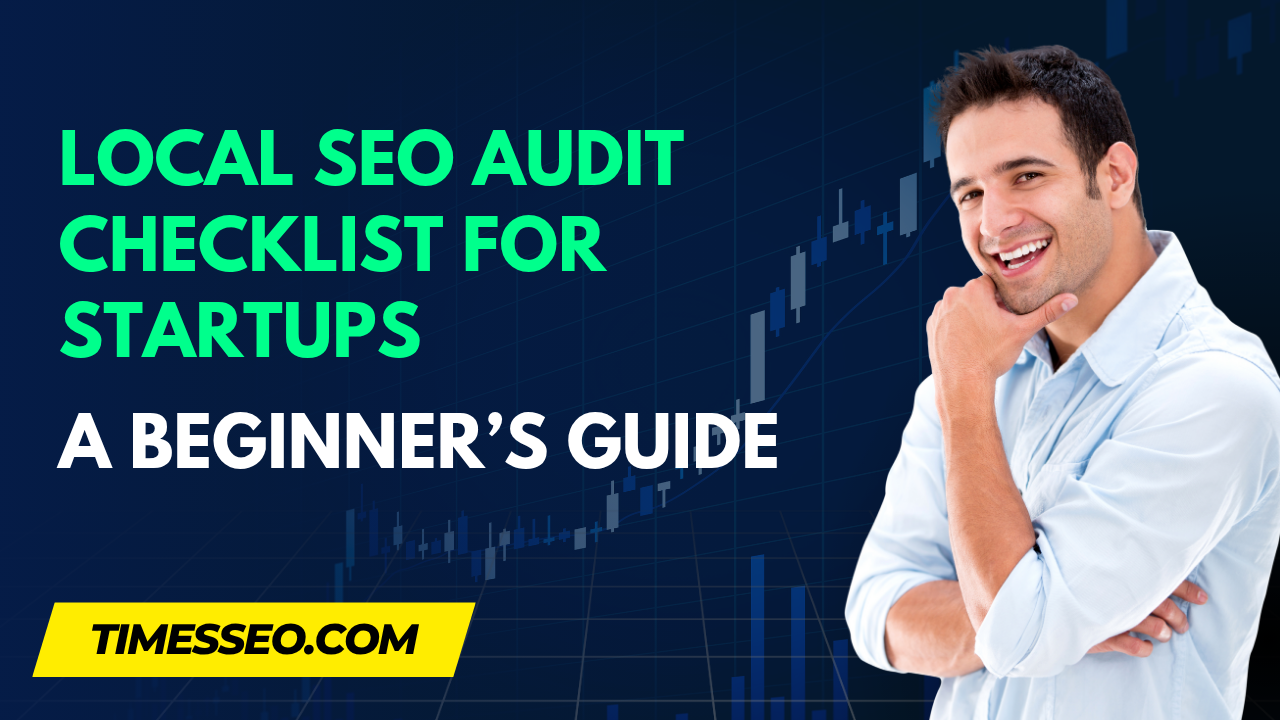 Local SEO Audit Checklist for Startups: A Beginner’s Guide28 Jun 2025 Blog
Local SEO Audit Checklist for Startups: A Beginner’s Guide28 Jun 2025 Blog -
 Top On-Page SEO Audit Steps for Service Websites Every Business Should Know29 Jun 2025 Blog
Top On-Page SEO Audit Steps for Service Websites Every Business Should Know29 Jun 2025 Blog -
 Technical SEO for WordPress: The Ultimate Beginner’s Guide01 Jul 2025 Blog
Technical SEO for WordPress: The Ultimate Beginner’s Guide01 Jul 2025 Blog -
 The Impact of On-Page SEO Audit Steps for Service Websites on UX01 Jul 2025 Blog
The Impact of On-Page SEO Audit Steps for Service Websites on UX01 Jul 2025 Blog -
 Technical Mobile SEO Audit Tips for Developers02 Jul 2025 Blog
Technical Mobile SEO Audit Tips for Developers02 Jul 2025 Blog -
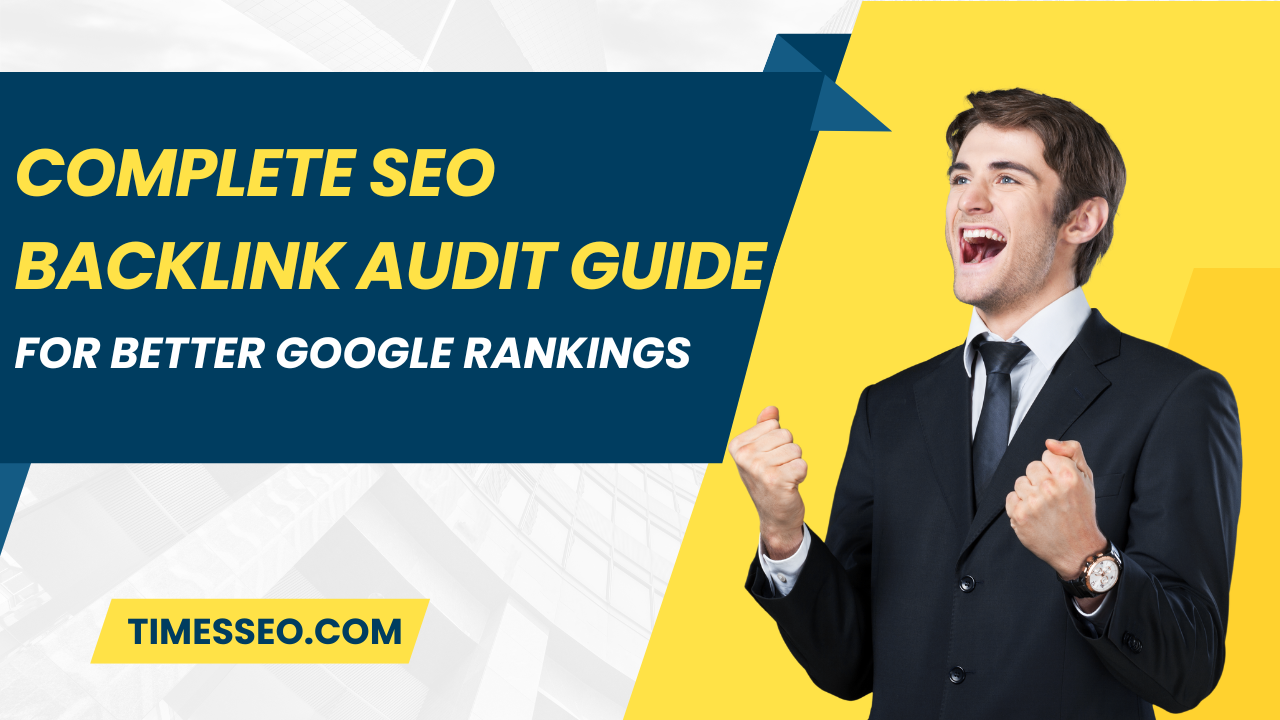 Complete SEO Backlink Audit Guide for Better Google Rankings03 Jul 2025 Blog
Complete SEO Backlink Audit Guide for Better Google Rankings03 Jul 2025 Blog -
 Boost Your Rankings with Technical SEO for WordPress01 Jul 2025 Blog
Boost Your Rankings with Technical SEO for WordPress01 Jul 2025 Blog

